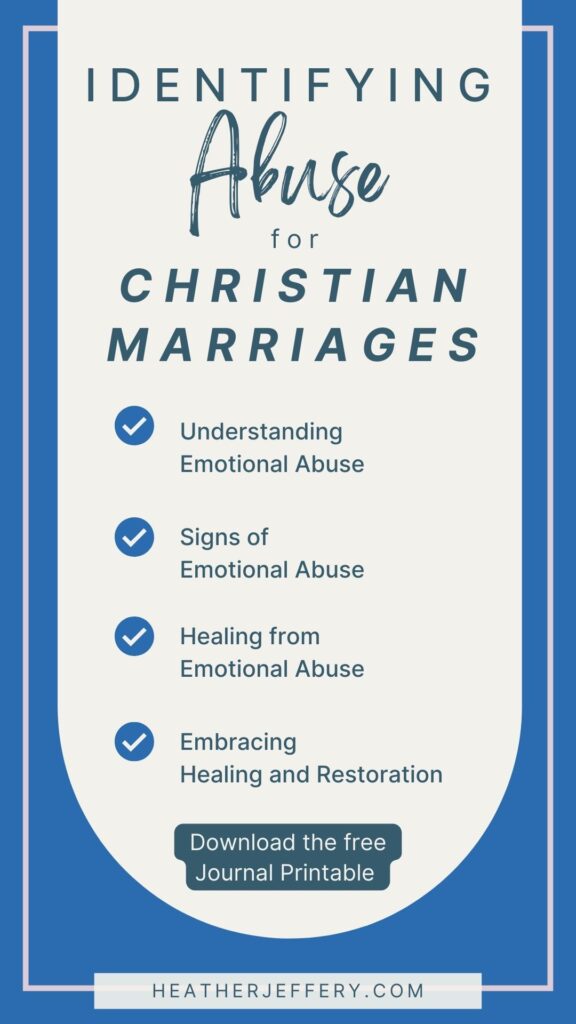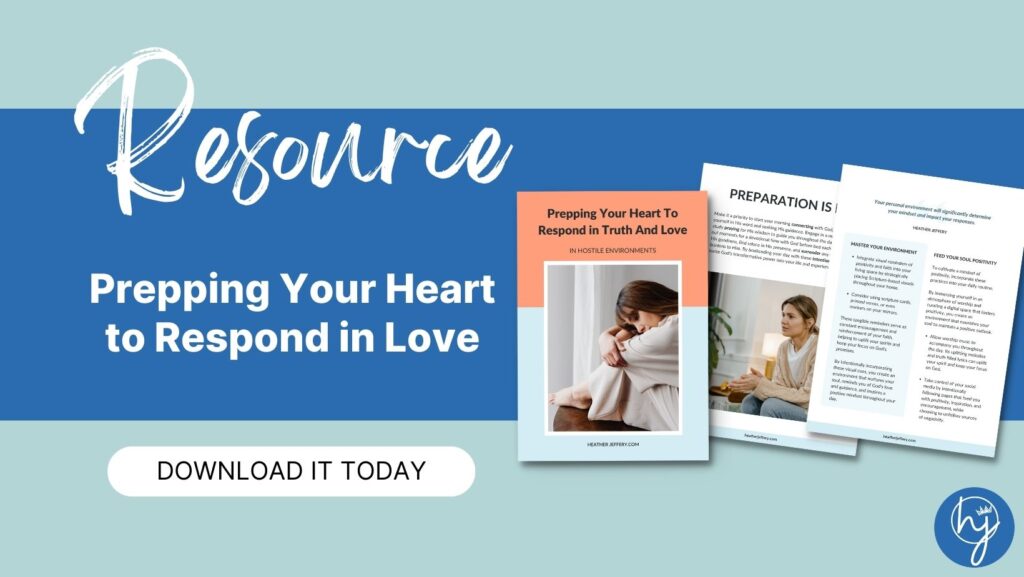Identifying and Addressing Emotional Abuse in Christian Marriages
In a Christian marriage, emotional abuse can often go unnoticed or be misunderstood, hindering the growth of healthy and thriving relationships. Recognizing the signs of emotional abuse is crucial to fostering an environment of love, respect, and mutual support. In this blog post, we will explore what emotional abuse looks like and provide guidance on how to identify and address these destructive patterns within the context of a Christian marriage.

Understanding Emotional Abuse
Emotional abuse encompasses any behavior intended to control, manipulate, or demean another person. It targets the emotional well-being, self-esteem, and overall mental health of the victim. It is important to note that emotional abuse often manifests subtly and escalates over time, making it challenging to identify. Nevertheless, its impact can be severe, leading to long-term emotional distress, low self-esteem, anxiety, depression, and various health issues. By recognizing emotional abuse, individuals can seek the support they need to break free from its destructive cycle.

Signs of Emotional Abuse
Identifying emotional abuse can be difficult due to its insidious nature. Here are ten common signs to watch for in a Christian marriage:
- Constant Criticism: Persistent belittling remarks and demeaning comments meant to undermine the victim’s self-esteem.
- Control: Imposing strict rules and demanding compliance, often limiting personal freedom and autonomy.
- Gaslighting: Distorting reality to make the victim doubt their perception, memory, and sanity.
- Blame and Guilt: Shifting responsibility onto the victim, fostering a sense of guilt and shame.
- Intimidation and Threats: Utilizing fear, threats, and intimidation to maintain control over the victim.
- Withholding Affection or Love: Using emotional detachment and lack of affection as a means of punishment.
- Emotional Blackmail: Manipulating the victim’s emotions to enforce compliance with the abuser’s demands.
- Constant Monitoring or Surveillance: Invading privacy, breaching boundaries, and surveilling the victim’s activities.
- Humiliation and Degradation: Publicly embarrassing or shaming the spouse, often in subtle ways that may go unnoticed by others.
- Minimization and Denial: Dismissing the victim’s concerns and feelings, refusing to acknowledge the impact of their behavior.

Healing from Emotional Abuse
If you find yourself experiencing emotional abuse in your Christian marriage, it is vital to take steps towards healing and restoration. Here are some key actions you can take:
- Seek Professional Help: Reach out to a counselor or therapist who specializes in trauma and abuse. They can provide guidance, support, and help you develop healthy coping mechanisms.
- Set Boundaries: Clearly communicate your boundaries to your spouse, asserting your right to be treated with respect and dignity. Establish limits on communication and make it clear that abusive behavior will not be tolerated.
- Lean on Your Support System: Share your experience with trusted friends, family members, or a mentor who understands the dynamics of abuse. Their support and empathy will remind you that you are not alone and provide the encouragement you need to take action.
- Focus on Self-Care: Prioritize self-care activities that promote your physical, emotional, and spiritual well-being. Engage in activities that bring you joy, practice relaxation techniques, and take care of your health.
- Pray and Seek Spiritual Guidance: Turn to your faith for comfort, guidance, and strength. Spend time in prayer and study scripture to deepen your connection with God, seeking wisdom and discernment as you navigate this challenging journey.
- Utilize Biblical Resources: Thankfully, there are now more biblical resources available to help women navigate abusive and destructive marriages. Seek out trusted materials and teachings that align with your faith. I suggest avoiding traditional marriage Bible studies that are typically not aimed toward destructive marriage issues.

Conclusion: Embracing Healing and Restoration
In a Christian marriage, emotional abuse can cast a dark shadow on the love and peace God intended in His design. However, by understanding the signs of emotional abuse and taking proactive steps towards healing, women can reclaim their sense of self-worth, find hope, and cultivate healthy relationships while exhibiting God honoring behavior.
Recognizing the need for healing is the first courageous step towards breaking free from the cycle of emotional abuse. Seeking professional help and support from trusted individuals can provide the necessary tools and guidance to navigate this challenging journey. Remember, you are not alone, and there is a community of empathetic souls ready to walk alongside you.
Throughout this journey, lean into your faith. Stay connected to God through prayer and reading His Word daily. Allow God’s love and truth to anchor you, guiding your steps towards peace and restoration. Remember that you are fearfully and wonderfully made, deserving of love, respect, and a life free from emotional abuse as a child of God. Enduring emotional abuse silently or indefinitely was not what God intended for marriage, the most intimate of human relationships designed to represent Christ and His Church.
In conclusion, dear sisters, do not allow the chains of emotional abuse to shackle your spirit. Take a stand, seek help, and embrace the journey towards healing and restoration. Remember, you are an image bearer worthy of love, happiness, and abundant blessings God has in store for you.
Share to spread awareness










